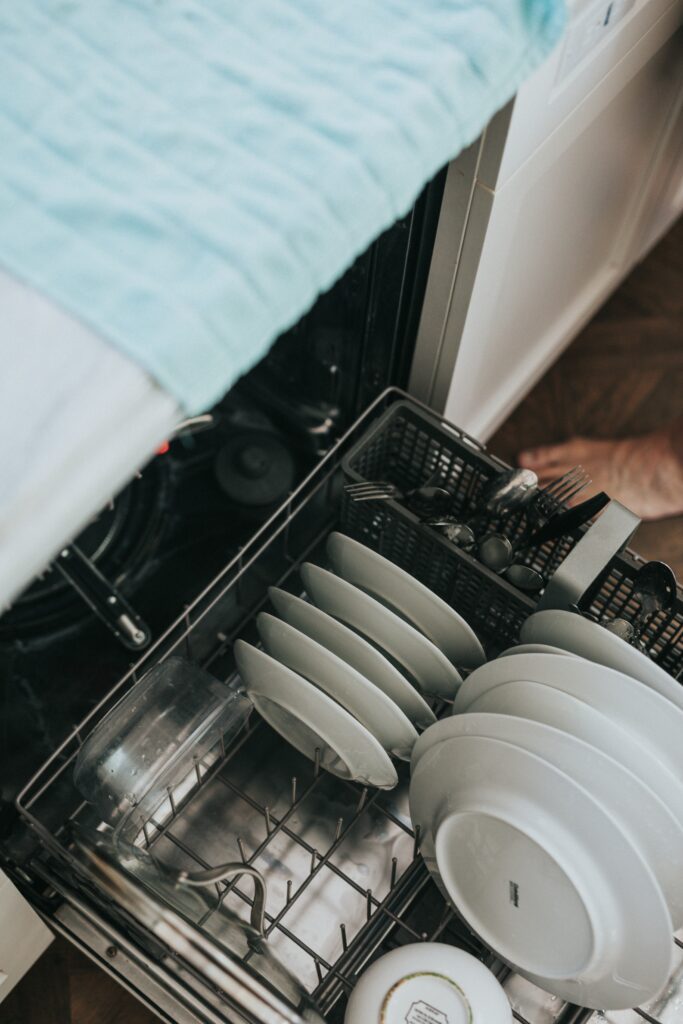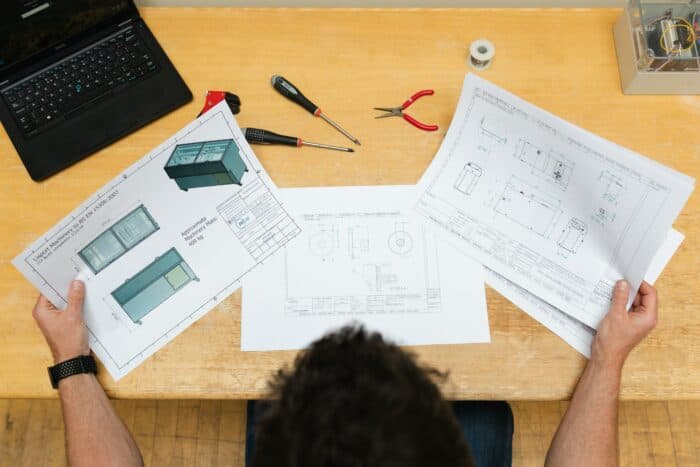I have always been somewhat of a negative person in the sense that I tended to view the glass as half empty. I had a pessimistic outlook on life and this became sort of a self-fulfilling prophecy, the more that I thought bad things would happen, the more they tended to. The people around me noticed this trait about me. It was difficult to hide. My worldview was impacted by this on every level. I believed that if I set my expectations low I would never be disappointed. There were no surprises this way. I think it was a defense mechanism. It wasn’t until I saw these same traits developing in my daughter that I began to pay more attention to this.

Before I discovered that I had OCD I could take advantage of this trait. I was meticulous and symmetrical about things. I noticed things that other people didn’t. I was a perfectionist. Those qualities in and of themselves are not ‘bad’, I have learned along the way. However, these can be excessive. As an engineer my job involves precision. These skills I have honed over the years can be imperative. I review drawings and plans and make sure that they meet requirements and codes. I am very analytical. In my career, it is important that I ensure things are being done right. The problem can arise when I try to apply these same standards to my personal life. Unfortunately, things in one’s personal life don’t fit neatly into codes or certainties.
Life is far more uncertain, far more messy.
In March 2020 my life changed drastically. My son was involved in a car accident. His car was totaled. This was at the moment when the Coronavirus had been declared a Pandemic. Life was no longer fitting into my prescribed notions of what it should be like. There was a palpable sense of uncertainty, a loss of control of even the most basic of things. It was a stressful time for most. My son was struggling. The car accident was traumatic.
One day not long after the accident I heard crying downstairs. As a father, my heart was broken. I knew that my child was struggling. And I didn’t know what I could do to help him. My son had seen a therapist when he was younger, but unfortunately, he was never diagnosed with OCD at that time. Now when he went to see his therapist, she recommended that he see one of her colleagues. It was then that we discovered our son had OCD. That is when I started to research what this was and what it meant. I couldn’t believe what I was reading. Not only was I concerned about my son’s well-being, but I was seeing so many things that I could relate to myself, the very things that I had struggled with my whole life came to life on the pages I read. It was then that I knew that I needed help too.
It took my son’s diagnosis to help me to see how much this condition impacted me and my family.
When I told my wife that I thought I had OCD and that I needed help she said she had known but she knew that it was something I needed to discover on my own. Through our research and trying to get help for our son we stumbled on a group out of England in 2021 on social media. OCDexcellence had a support group for parents with kids who had OCD and we signed up. We met other parents who were experiencing similar things. It was life-changing. We realized we were not alone.
For me, I started to see patterns of behaviors that I engaged in that were contributing to my son’s OCD. I was accommodating his condition. I was walking on constant eggshells around my son, afraid of upsetting him further. I had become obsessed with the fear of my son killing himself. This thought tormented me. I began to act like a drug dealer in the sense only I was selling reassurance, not drugs. The way I was responding to the OCD was not how we were being taught in the workshop/support group. This caused problems between my wife and I. She was more consistent in her responses and she did not give in to the OCD with our son, while I was so scared of losing him. We needed to be on the same page. My wife said to me “I need you to help me with this.” She knew that she couldn’t do this on her own. She said that she was not willing to enable my OCD or my son’s. I was at a crossroads, not only with my son’s treatment but my own as well.
I turned back to Google. I found NOCD. I started therapy with Jamie. This was February 2022. This was the first step of my journey towards recovery, for myself and for my family. Little by little I tackled my fears. I slowly and steadily moved up my hierarchy. I learned that I had been engaging in compulsions for a long time. I would wait up until all hours of the night to ensure my children were all home, even when they were young adults. I was constantly reminding them to be safe and excessively texting them and waiting for them to respond so I would feel secure and safe. It was reassurance. I would pray excessively for their safety. It was always at the forefront of my mind. I had several safety rituals that I felt I needed to do. I would listen and check for certain cues in the house that alerted me that the children were safe, even when I knew they had been home. I would check the lights outside and ensure these were off and that my son’s car was in the driveway. I would listen to the sound of the ceiling fan in my son’s room, which alerted me that he was home. These were what I thought of as ‘little things’ but they turned into bigger and bigger things.
The more that you give into OCD the more it demands. I had to come to the realization that these compulsions were hurting me, not helping me.
As part of my ERP, I had to say things out loud that were difficult. I had to say that I could hold my son accountable and he could kill himself. I created loop tapes of myself saying this and listened to them repeatedly while not doing compulsions. I did this until eventually, the anxiety came down. This was one of the most uncomfortable things I did in treatment. I also learned to let go of the need to have things done in certain numerical ways and have things be symmetrical when not at work.
One of the things that seemed small initially but turned out to be an important exposure involved our dishwasher. There was a time that I felt like only I could load it properly. I had very specific ways in which I wanted it done. I would become upset if it wasn’t done ‘correctly’.

Through my treatment, I learned that I could tolerate the feelings I had when others loaded it ‘incorrectly’ and nothing terrible would happen. As I allowed people to do this and accepted that I cannot be in control of everything being done ‘right’ I felt a huge weight lift from my shoulders. I didn’t need to do things by a prescribed regimen. I was free from needing to do these seemingly little things and could finally let go. I learned there wasn’t necessarily a ‘right’ way or a ‘wrong’ way.
I was starting to learn to accept uncertainty and that I could tolerate the feelings that I experienced when I felt out of control.
OCD, to me, is this thing that grabs ahold of a natural thing and magnifies it. It turns it into your worst, most horrific fear. It amplifies the possibility of something awful happening whilst downplaying the probability of good things happening. I remember discussing with my therapist how to balance my reactions. I needed to learn what is OCD versus what is ‘normal’. I had to learn to pay attention to my reactions and recognize the sound of OCD, so to speak. If it came with urgency and anxiety, it was more likely OCD as opposed to a real problem that needed to be analyzed.
OCD no longer controls my life, my behaviors, and my family. OCD doesn’t have a crippling grip on my life any longer. I learned that I likely had OCD most of my life. It just hadn’t impaired my functioning to the degree until the accident. I had always had fears surrounding the safety of my children. I never really understood how others seemed to brush off the worries while I would lay awake at night thinking about these things. I don’t know if I realized it was excessive. Part of me thought it was normal to always envision the worst-case scenarios in my head. Sometimes, I think that OCD can take what may be a useful quality or trait and make it unbearable. Fear and anxiety aren’t ‘bad’ but sometimes these emotions don’t work as they should and it can be debilitating. That is what happens when you have OCD. It can be crippling.
Recovery is a process. It isn’t as though the OCD is suddenly gone, but I am recognizing it more. I am not allowing it to be in control. My advice to anyone suffering from this is to get help right away, don’t put it off. Face it head-on as hard as it is. Don’t give up, keep pushing forward. You will be so happy that you get treatment. There is no such thing as a ‘perfect’ recovery or treatment. When I have bumps in the road, I get back into therapy and get a quick refresher. You are never all the way back to zero, you cannot unlearn all of the tools you have been taught. You don’t lose progress.

These days I am utilizing ERP in my life, exercising regularly (I even have a personal trainer), and cycling. I am very involved in my church and in Bible study groups. I am living the life that I want to live. I am no longer caged by my fears.

